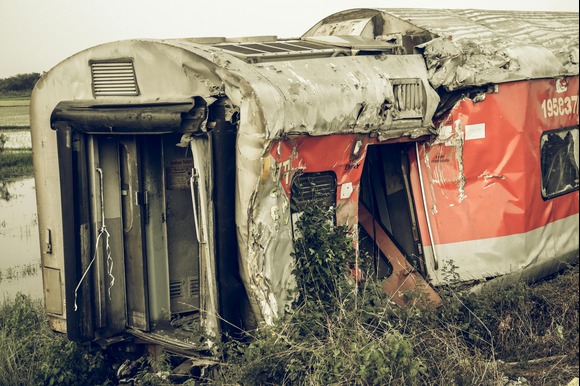At least three people have died and dozens more have been injured after a passenger train carrying 100 people derailed in Germany’s southwestern Baden-Wurttemberg state on Sunday evening, authorities confirmed.
The accident occurred in a heavily wooded area near the town of Riedlingen, approximately 158km (98 miles) west of Munich. According to local officials, the fatalities include the train’s driver and an employee of Deutsche Bahn, Germany’s national rail operator.
Charlotte Ziller, the district’s fire chief, told reporters that 50 people had sustained injuries, with 25 of them described as being in serious condition.
Deutsche Bahn released a statement confirming that two train carriages had come off the tracks “for reasons yet unknown,” adding that multiple people had been killed and many others injured. The company said an investigation into the cause of the derailment is underway and that a 40km (25-mile) section of the route has been closed to rail traffic while emergency and recovery operations continue.
Thomas Strobl, the interior minister of Baden-Wurttemberg, said recent severe weather may have played a role in the tragedy. “We’ve experienced intense rainfall in the area, and it is possible that a landslide linked to the heavy rain may have caused the derailment,” he said. “However, this is currently under investigation.”
The train had been en route from the town of Sigmaringen to the city of Ulm when it derailed. German Chancellor Friedrich Merz expressed his condolences in a post on social media, offering sympathies to the families of the deceased. Merz noted he is in direct contact with the interior and transport ministries, and has instructed them to ensure emergency responders receive any support they require.
Images from the crash site revealed carriages painted in yellow and grey lying on their sides amid the forest terrain, while firefighters and emergency personnel worked to assist survivors.
Local broadcaster SWR reported that helicopters were quickly dispatched to the scene to airlift those most seriously injured to nearby hospitals. Emergency physicians from regional hospitals were also mobilised to provide immediate care.
Richard Lutz, the CEO of Deutsche Bahn, announced he would travel to the accident site on Monday. In a public statement, Lutz said the company was “profoundly shocked and saddened” by the incident, expressing gratitude to all rescue workers and volunteers responding to the disaster.
“My deepest sympathies go to the families of those who lost their lives,” Lutz said. “I also wish all the injured a swift and complete recovery.”
According to Germany’s DPA news agency, Deutsche Bahn has established a free emergency hotline for those impacted by the crash and their families. Crisis counselling, including chaplains and psychologists, is also being made available to both passengers and railway employees.
Germany’s rail infrastructure has often been criticised by commuters and the public for being outdated, with persistent complaints about delays, breakdowns, and system failures. In response, the German government has pledged to invest hundreds of billions of euros over the coming years to overhaul and modernise its railway network.
Sunday’s derailment is reminiscent of past tragedies. In June 2022, a train derailed near a resort town in the Bavarian Alps, resulting in four deaths and injuring many others.
Germany’s most devastating train disaster occurred in 1998, when a high-speed Intercity Express (ICE) train derailed near Eschede in Lower Saxony. That crash, also involving Deutsche Bahn, claimed the lives of 101 people.
Despite such incidents, rail travel in Germany continues to be statistically safer than driving. According to the Federal Statistical Office, road crashes in 2024 have claimed 2,770 lives nationwide.






